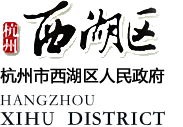Leifeng Pagoda in Evening Glow
2017-01-06Located in front of Jingci Temple, Leifeng Pagoda rises beside the lake in the north extension of Nanping Mountain, surrounded by green forests. It is small and exquisite, but its reputation is among the best on the lake. Leifeng Pagoda built in the Wuyue period was once located at the top of the mountain, and it was the most glamorous and romantic pagoda among numerous ancient pagodas in the West Lake. Unfortunately, the pagoda collapsed and the name of the mountain was even changed into Xizhao Mountain. This famous mountain of peninsula shape surrounded by water in three sides on the south bank of the West Lake was once occupied by the imperial garden of the Southern Song Dynasty. After 1949, ornamental trees, including cinnamomum camphora, sweetgum and elm, were grown on the mountain. In the evening glow and forest, its scenery is still beautiful. Leifeng Pagoda was built in the Five Dynasties (975) to celebrate the birth of the Wuyue King Qian Chu’s son, born to Huang Fei. Its original name is Huang Fei Pagoda. It was built outside Xiguan, so it is also known as Xiguan Brick Pagoda. Thirteen storeys were planned, but only five storeys were completed due to the restriction of financial resources. In the period of Emperor Jiajing of the Ming Dynasty, Japanese pirates attacked Hangzhou. Suspecting the pagoda contained weapons, they burned its wooden elements, leaving only the brick skeleton. King Zhongyi of Wuyue, Qian Chu had another name of Wende. His dates of birth and death were 929 and 988. He was the last king of Wuyue during Wudai-Shiguo Period. On 30 Dec. 947 (solar calendar: 12 Feb. 948), the general Hu Jinsi launched a coup when King Qian Hongzong of Wuyue feted his subordinates. Then Qian Hongzong was put in house arrest, and Qian Chu was set as king of Wuyue by Hu Jinsi. During more than thirty years after Qian Chu inherited the throne, he served Later Han Dynasty, Later Zhou Dynasty and Northern Song Dynasty. In 978, Qian Chu entered Bianliang on the imperial order of Emperor Taizong of Song. He was detained, and had to give his territory to Song. He was ennobled as King Huaihai, King Hannan, King Nanyang, King Xu and King Deng successively. At his 60thbirthday in 988, Emperor Taizong of Song sent an ambassador to congratulate him. However, Qian Chu died suddenly at that night, and he was suspected to be killed with poison. His posthumous title was Zhongyi. He liked chanting and compiled his poems into a collection. Tao Gu wrote a prologue for it. “Writings in Imperial Palace” still exists today. Leifeng Pagoda was built to celebrate the birth of Qian Chu’s son, born to Huang Fei.



 浙公网安备 33010602000665号
浙公网安备 33010602000665号